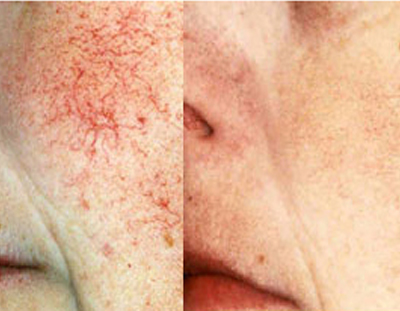Laser hair removal is a medical procedure that uses a laser — an intense, pulsating beam of light — to remove unwanted hair.
During laser hair removal, a laser beam passes through the skin to an individual hair follicle. The intense heat of the laser damages the hair follicle, which inhibits future hair growth. Laser hair removal is most effective for people who have light skin and dark hair.
Although laser hair removal effectively slows hair growth, it doesn’t guarantee permanent hair removal. It typically takes multiple laser hair removal treatments to provide an extended hair-free period. Periodic maintenance treatments might be needed as well.


Pigmentation means coloring. Skin pigmentation disorders affect the color of your skin. Your skin gets its color from a pigment called melanin. Special cells in the skin make melanin. When these cells become damaged or unhealthy, it affects melanin production. Some pigmentation disorders affect just patches of skin. Others affect your entire body.
Vascular lesions of the head and neck encompass a wide range of different lesions. Historically, these lesions have been poorly understood, and their nomenclature reflects this. Over the years, this nomenclature has evolved as progress has been made in our understanding of the histopathology, clinical behavior, treatment, and prognosis of these lesions.
